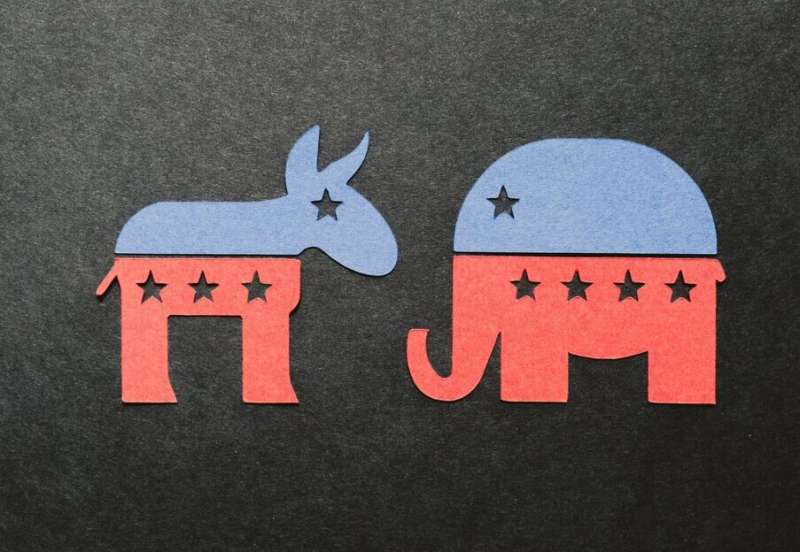This article has been reviewed according to Science X's editorial process and policies. Editors have highlighted the following attributes while ensuring the content's credibility:
fact-checked
peer-reviewed publication
trusted source
proofread
Generic statements widen the divide between political parties, study finds

Using generic terms in politics may be exacerbating political division, a new study suggests. Statements such as "Democrats want to have tougher gun laws" and "Republicans want to ban abortion," can heighten perceived differences between the two political parties, the study says.
Researchers at the University of Michigan, Columbia University and Stony Brook University studied political polarization due to individuals making broad generalizations about certain groups based on inconsistent evidence. In three studies with 1,767 adults, they measured the interpretation, endorsement and recall of statements, also known as generics. The findings are published in the Proceedings of the National Academy of Sciences.
In one survey, people were asked if they agreed with a series of generic statements about Democrats and Republicans. The findings indicate that even when people believe that Republicans and Democrats differ only weakly in their endorsement of a policy, they still accept and reject generic claims that place Republicans and Democrats into opposite categories.
For example, Republicans and Democrats are fairly close in their belief that the federal income tax that they pay is too high (57% and 51%, respectively). However, people typically endorse opposing generic claims: that Republicans believe that the federal income tax that they pay is too high, while Democrats do not.
The researchers also found that people tend to misremember statements as generic when those statements were initially stated in a more nuanced way. In one study, participants saw phrases that used "many" and "some." Those who read "Many Ohio farmers depend on trade" tended to remember it later as "Ohio farmers depend on trade."
"This suggests that even if politicians are careful to use more nuanced language, people will often remember their claims as generic, and therefore draw polarized inferences," said study co-author Susan Gelman, U-M professor of psychology and linguistics.
Finally, researchers found that generic statements about Democrats and Republicans increase how far apart people think the two parties are. When people read a generic statement with new information about either Democrats or Republicans, they assume that it does not apply to the other party.
Overall, the study's results indicate that people mentally hold political claims that exaggerate differences between parties, which is heightened when those claims are expressed with generic language.
More information: Gustavo Novoa et al, Generically partisan: Polarization in political communication, Proceedings of the National Academy of Sciences (2023). DOI: 10.1073/pnas.2309361120
Journal information: Proceedings of the National Academy of Sciences
Provided by University of Michigan




















